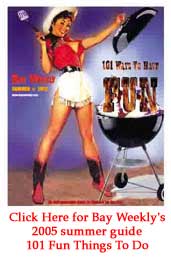Letters to the Editor
We welcome your opinions and letters — with name and address. We will edit when necessary. Include your name, address and phone number for verification. Mail them to Bay Weekly, P.O. Box 358, Deale, MD 20751 • E-mail them to [email protected]. or submit your letters on line, click here
Does Bad Water Mean Bad Crabs?
Dear Bay Weekly:
M.L. Faunce does a great job of keeping us up to date on where to find crabs to buy, but I want to know just where in the Chesapeake Bay watermen find crabs to harvest. With all the talk about dead zones and shellfishing bans in the Bay, how do we know our crabs — and clams too — are safe to eat?
—S.L. Linebaugh, Tracys Landing
Surviving Confusion on the Water
Dear Bay Weekly:
I enjoyed Pat Piper’s article on “10 Tips to Getting Along on the Water” [Vol. xiii, No. 29: July 21]. However I have a comment on a couple of things.
First in Number 6, I agree with his assessment that too many people use Channel 16 for inappropriate contact such as radio checks. Unfortunately that is the extent to which the majority of boaters use their VHF. When in commercial traffic areas, I monitor 13 and communicate with vessels I come into contact with, and they have been appreciative of the call. At minimum, they know you’re aware of their approach.
I was surprised at the omission of the use of sound signals in his article. During daylight and restricted visibility, sound signals can save many confusing situations. And I rarely hear any pleasure vessel use them.
Second, in closing in Number 8 he states correctly that sail has the right of way and common courtesy suggests that a vessel under sail avoid a fishing vessel while trolling. As a sailor, I always alter my course around fishing boats if possible. If a boat is NOC (not under command) it has right of way over any vessel and must be avoided (Rule 18 of the COLREGS).
Fishing Boats that are trolling should also be aware of the wind direction. I have many times seen trolling boats closing from upwind of sailboats on crossing courses when they could easily duck a sailboat. Many fishing boats misinterpret the rule that a vessel engaged in fishing has right of way over a sailing vessel. If they would reference Rule 3 General Definitions, they would see it does not include vessels not fishing nor angling or trolling recreational boats.
I realize that when writing an article, space is limited and one could pontificate on these issues to no end. I just wanted to comment on points I feel are important omissions. Thanks for listening.
—Paul Duncan, Chesapeake Beach
Pat Piper’s reply: Had I written on how boaters screw up what should be done, you’d have had to devote an entire Bay Weekly (including space that is used for ads) to the long list. Paul Duncan knows of what he speaks.


